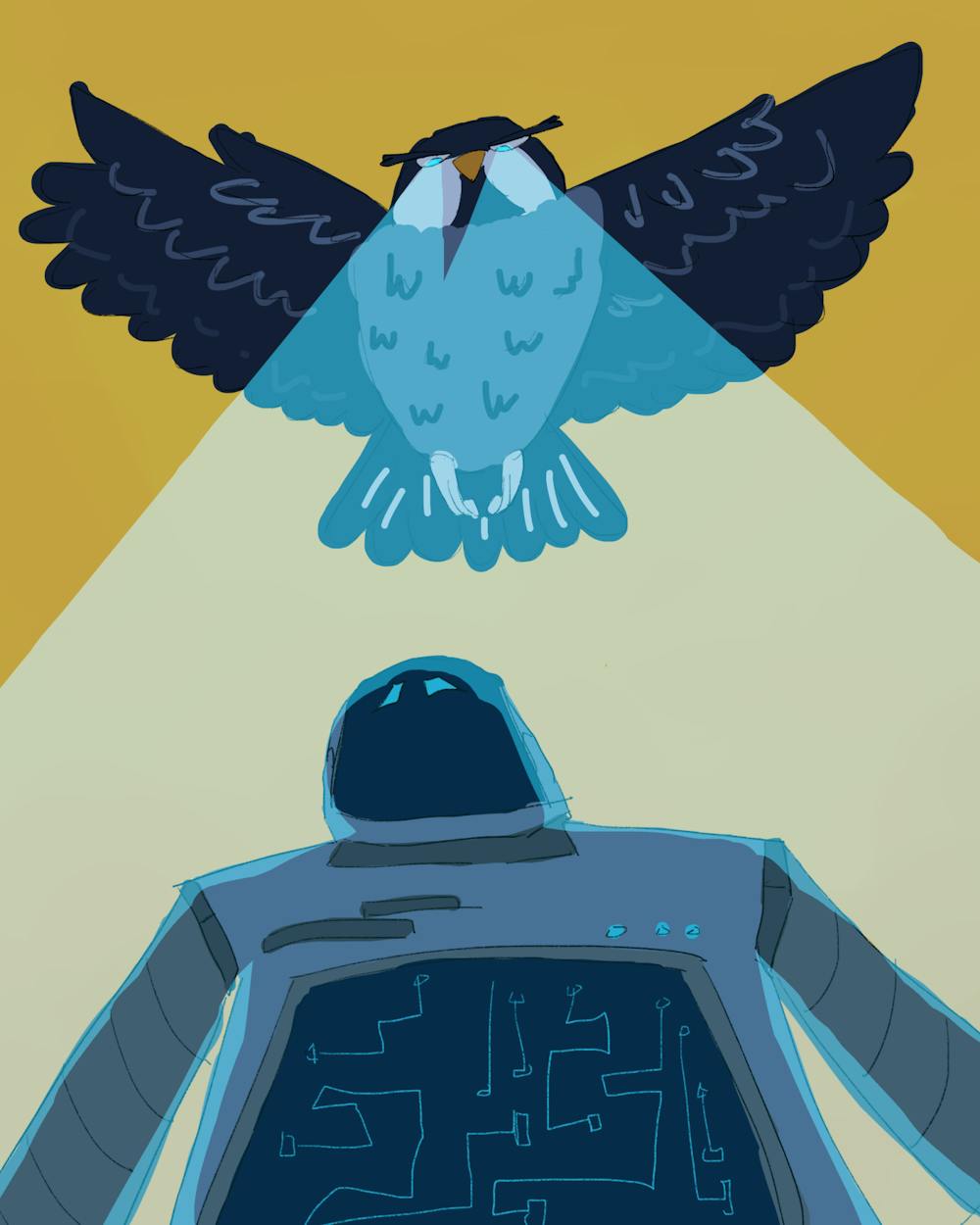Rice joins new federal AI Safety Institute Consortium

Rice joined the U.S. Department of Commerce’s Artificial Intelligence Consortium, which aims to support safe practices and uses of AI.
Rice’s Ken Kennedy Institute is leading the effort to further discussion about AI as a stakeholder in the consortium established by the National Institute of Standards and Technology.
Executive Vice President for Research Ramamoorthy Ramesh said that the university will work with academic experts and government and industry researchers and organizations to promote the safe and smart use of AI. Given Rice’s prominence in the computer science field, Ramesh said it’s important that the university shares its knowledge within the consortium.
“We have a social responsibility to share that expertise with others, through this consortium and other outreach activities such as the Ken Kennedy Institute’s High-Performance Computing Conference,” Ramesh wrote in an email to the Thresher. “Rice scientists are respected and trusted leaders in this field, and we must be at the forefront of discussions around responsible AI.”
According to Lydia Kavraki, the director of the Ken Kennedy Institute, more than 200 stakeholders are involved in this consortium.
“Members of the Ken Kennedy Institute are invited to participate in key NIST committees that will shape the directions and recommendations for the development and practice of AI in the future,” Kavraki wrote in an email to the Thresher. “There is a pressing need to set the standards and develop the tools we need to mitigate the risks and harness the immense potential of artificial intelligence. We estimate that about 10 of our members will be involved.”
Fred Oswald, a professor in the psychology department and a member of the National Artificial Intelligence Advisory Committee, said he was pleased to suggest Rice to be part of the NIST.
“The Ken Kennedy Institute is committed through its work to ensure safe and trustworthy AI technologies,” Oswald wrote in an email to the Thresher. “Therefore, it was a pleasure to enthusiastically recommend the institute to NIST as a charter member of the U.S. AI Safety Institute Consortium.”
The consortium was established after President Joe Biden issued an Executive Order Feb. 8 that outlined a strategy to establish new standards for AI safety and privacy for the U.S.
Devika Subramanian is a professor of computer science and is one of the Rice faculty members who is involved in work for the consortium. The most important part of the Consortium’s work is to implement new safety features, she said, while at the same time, not inhibiting further progress within the field.
“We don’t want to constrain innovation, to put so many guardrails that you can do nothing interesting, right?” Subramanian said. “On the other hand, you don’t want to say it’s the Wild West. There’s clearly a balance that has to be struck.
“The best way to do that kind of thing is to bring people who make these AI products … academic researchers who also sort of contribute core ideas and help evaluate these systems,” Subramanian said. “And then, of course, we should never ignore the user community.”
According to Ramesh, separately from this consortium, Provost Amy Dittmar and vice president for information technology Paul Padley have recently established an AI Advisory Committee, chaired by Oswald. Dittmar said the committee has not met yet; however, she said the advisory committee was created to provide insight on how AI affects the university’s mission, policies and operations both inside and outside the classroom.
“Before this committee formed, [Padley] gathered an informal group to provide insights on teaching tools, and at the start of the academic year, we sent a message to faculty with guidance on using generative AI,” Dittmar wrote in an email to the Thresher. “The new committee will bring forth ideas and provide insight on issues related to AI across teaching, as well as supporting research and university operations.”
Subramanian said she’s glad that the work within the consortium is happening now, before something potentially more harmful happens in the future.
“I’m thrilled that we’re thinking about it now, rather than after the big disaster when we all throw our collective heads,” Subramanian said. “I’m thrilled to be part of this effort. And I hope something good comes out of it.”
More from The Rice Thresher

Five international visas revoked at Rice
Federal authorities have revoked visas for five international affiliates at Rice — three current students and two recent graduates, President Reginald DesRoches announced in an April 11 message to campus. The revocations are “not related to social activism or protests,” a university spokesperson told the Thresher.

Modified Beer Bike races rescheduled to April 18
Beer Bike races have been rescheduled for April 18 at 5-8 p.m. The makeup event was announced in an email to Beer Bike captains, coordinators and stakeholders, from the campuswide coordinators and the Bike Captains Planning Committee.

Good Friday and college night overlap sparks ire among students
Four college nights are happening on Good Friday this year. This overlap has caused controversy amongst students who observe the high holy day.

Please note All comments are eligible for publication by The Rice Thresher.